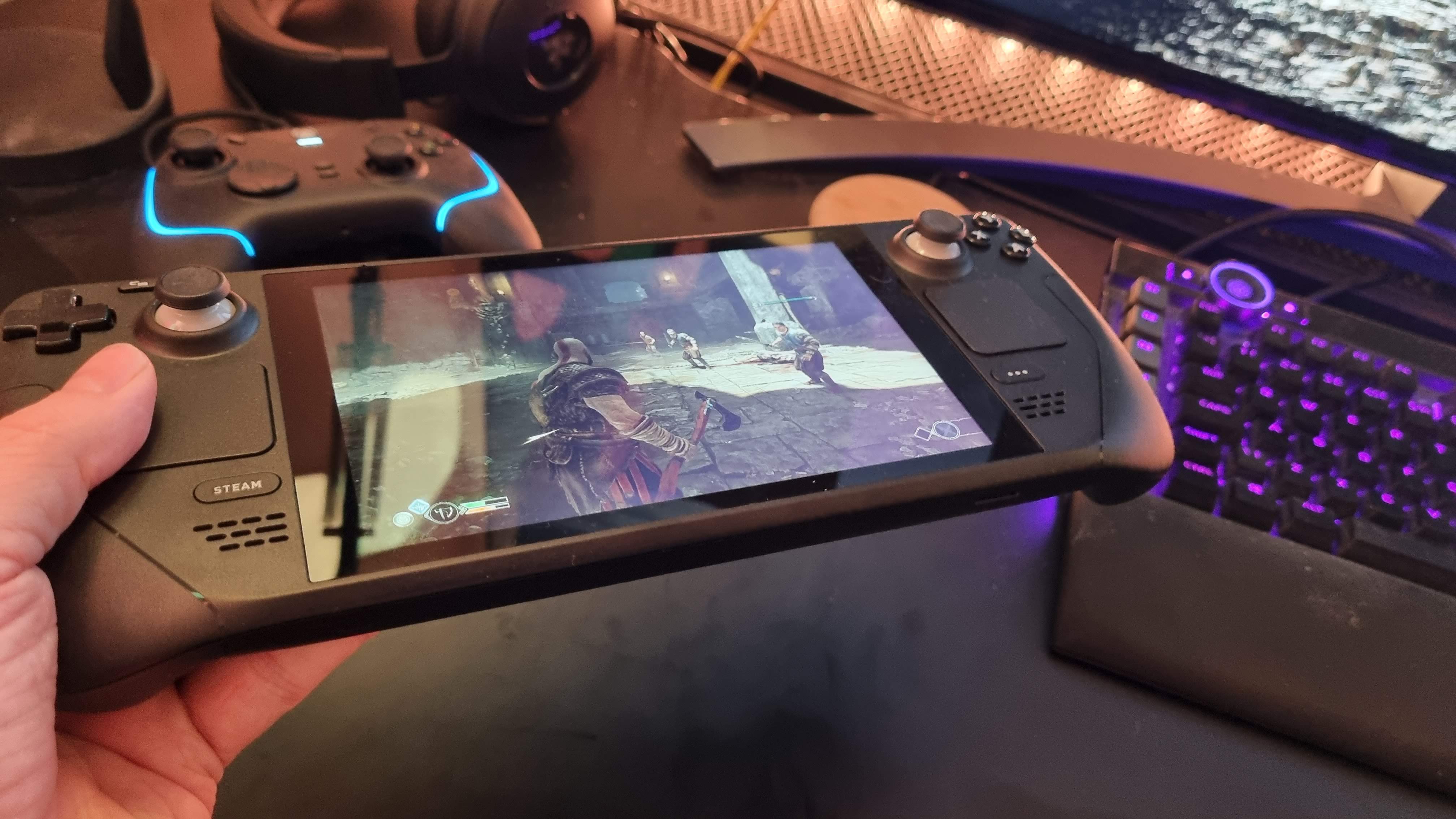The new Steam Deck update makes the console cooler and louder
Cooler in a literal sense that is

Sign up for breaking news, reviews, opinion, top tech deals, and more.
You are now subscribed
Your newsletter sign-up was successful
Updates are currently being tested for the Steam Deck, Valve's handheld PC gaming console, which includes improvements to the current fan curve and audio enhancements that can elevate the system's max volume.
The patch notes were published on the Steam blog, with Valve designer Lawrence Yang also tweeting the news, stating "As a reminder, these changes are in beta for testing, so please let us know if you have feedback!".
We’ve also just shipped an update to the SteamOS Beta channel for Steam Deck, with an updated fan controller, audio improvements, and more. As a reminder, these changes are in beta for testing, so please let us know if you have feedback! Details here: https://t.co/mMXM6MFIuG pic.twitter.com/2qgLEV7yycMay 20, 2022
These updates are a part of the SteamOS 3.2 Beta that started on April 25, with this latest batch of changes updated on May 19. We don't yet have a full release date for the update, so unless you're experiencing significant issues with the console you might want to sit tight and wait for a full rollout while these are still in the testing phase.
One of the biggest issues addressed is the fan control, as the Steam Deck was criticized for being particularly noisy even during periods of low performance. The update to the fan controller should help reduce noise when you're not playing something overly demanding, or even just browsing on the home screen.
The complete list of updates can be found below:
- Updated fan controller – now smarter, more stable, and quieter overall
- Performance HUD now shows a more accurate reading of VRAM used (previously would cap out at 1G used)
- Added more internal resolution options for games to choose from
- Fixed gain staging, resulting in higher max volume and removing white noise coming through 3.5mm jack with some headphones.
- Fixed PipeWire and Steam failing to elevate their thread priorities
- Fixed the language dropdown in the Warframe launcher
Analysis: When will Valve deliver on other Steam Deck promises?
It feels like the Steam Deck is very much still in its teething phase, especially regarding various operating system updates, but the short time it's spent on the market is enough to have converted me from a skeptic to a fan.
Gaming laptops will always have a place in the computing community, but this is the direction I see portable PC gaming heading in. Valve's frequent updates and transparency are refreshing, and despite multiple issues, I don't know many folks who purchased a Steam Deck who regret doing so.
Sign up for breaking news, reviews, opinion, top tech deals, and more.
Valve also recently implemented per-game performance settings so I expect that many teething problems discovered by Steam Deck users will be addressed or even fixed over the coming months.
The world of tech moves swiftly though, and given computing components such as processors and graphics (both integrated and discrete) typically get refreshed with a new generation every 1-3 years, I'm keen to know what's coming next. Will there be a Steam Deck 2? Or perhaps Valve is hoping to keep its hardware updated via software updates without any current plan for the future.
What I would like to see before the current version of the Steam Deck starts to become dated or in need of a refresh, is cosmetic variety. Where are the different color variations or limited edition brand models? We know that white versions of the Steam Deck exist, though these were supposedly just prototypes, and Valve has previously teased that it was planning to release the product in different colors.
It's hardly a deal-breaker, and Valve's dedication to making the platform work has convinced me to have a little faith, but I'd still feel more excited about the Steam Deck if it was available in shades that match my own aesthetic, as would many gamers that enjoy hardware that doesn't just default to a black chassis.
Jess is a former TechRadar Computing writer, where she covered all aspects of Mac and PC hardware, including PC gaming and peripherals. She has been interviewed as an industry expert for the BBC, and while her educational background was in prosthetics and model-making, her true love is in tech and she has built numerous desktop computers over the last 10 years for gaming and content creation. Jess is now a journalist at The Verge.
